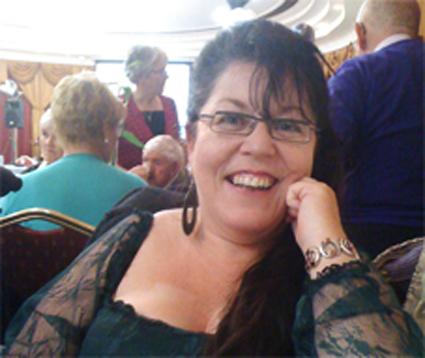My body politic - part three

The final part of our interview with Seanad candidate Rosaleen McDonagh. By Colin Murphy.
Rosaleen McDonagh in her own words:
On being a Traveller:
"I just love it. Everything I read, everything I write, every bit of music I hear – I project my Traveller identity onto that. I love the Traveller accent. When I go away I have to ring my family just to hear that heavy Traveller accent. I'd walk the earth to find it."
On racism:
"I've probably internalised a lot of racism – your bury it in your heart, in your soul. You're very aware that people think you're subservient to them, culturally."
On Traveller women:
"Settled women might think Traveller women are subservient and that we live in a very macho culture. But you only see a veneer. There are Traveller women who are changing traditional roles. They are pulling and stretching the boundaries like never before. This can only enrich our culture. Other minority women, such as Asian women and Muslim women – we're all in the same boat. White settled women aren't the only feminists. Traveller women are feminists but in a way that suits our cultural identity. It doesn't mean we're subservient nor does it mean we want to be settled."
On big fat gypsy weddings:
"'My Big Fat Gypsy Wedding' on Channel 4 was voyeuristic and dangerous. Elements about our culture were magnified, minimized and sensationalized with no real context or understanding. In truth, there are no Big Fat Gypsy Weddings, at least not in Ireland. That level of ostentation is beyond the means of most Travellers. Obtaining and sustaining a hotel booking is still one of the hardest things to do for a Traveller family. And then we are told that racism is in our heads. It's funny, we're not recognized as an ethnic group, yet there is a lot of racial or ethnic profiling done. It's very subtle, informal, but brings with it a lot of discrimination."
On Traveller men:
"Traveller women have been invested in more than Traveller men. There's opportunities and courses. But it's much harder for Traveller men."
"Traveller women embody Traveller culture in a way that men don't – it's inside us, it's visceral. Men are able to pass as settled people in a way we can't."
On violence and policing:
"Whether you're beating your wife or another Traveller man, the guards say, 'It's a Traveller thing.' If the law hasn't protected us, how can we trust it?"
On self-development:
"We can't continue the way we are, because so many of us are disenfranchised by the rules and regulations of Traveller culture: women, gay people, young people.
"We have to do a lot of work internally, around choice, autonomy, and freedom. Our fall down is the lack of education.
We have to create safe spaces for people."
On young Travellers:
"In my day, if you associated with settled people, or wanted to go to school, that was a bad thing. We have to value Traveller culture, but also see it as fluid. We need young people to be able to incorporate Traveller identity into whatever choices they make, so that there's no stigma or shame.
"I love the way young Travellers can just find ways to make their way in the world. I love the way they manage, working out when it's safe to say they're a Traveller, and when it's not. I love that we're not passive any more."
On leadership:
"We need to create an intelligentsia within our community, and not only males and not only in political activism. We have the cultural stuff – music, song, poetry, storytelling, drama – but the other elements – business, entrepreneurs, media – need to be nurtured and valued."
On the Seanad:
"The senate as it is is pale, male and stale. But it should be reformed, not abolished. Right now, it's not working on many levels. The elitism of the university panels is offensive – to a large number of the general population, not just to pavees."
